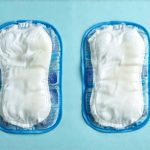The sensation of feeling unusually warm after even mild physical activity—a walk, some gardening, light housework—can be surprisingly disconcerting. We typically associate heat with vigorous exertion, expecting it to correlate directly with the effort expended. When warmth lingers or feels disproportionate to the activity level, questions naturally arise: is this normal? Is something wrong? While often benign and attributable to perfectly understandable physiological processes, persistent or extreme internal heating warrants attention and understanding. This article will delve into the potential causes of this phenomenon, exploring both common explanations and less frequent considerations, ultimately aiming to provide a framework for evaluating your experience and knowing when to seek further guidance.
It’s crucial to remember that individual responses to exercise vary widely based on factors like age, fitness level, hydration status, underlying health conditions, and even genetics. What feels “normal” for one person may be different for another. This inherent variability makes self-diagnosis tricky; the goal isn’t to become a medical expert but rather to gain enough knowledge to differentiate between expected responses and those that might signal something requiring professional evaluation. Understanding your own body’s typical reactions is paramount, allowing you to identify deviations and respond appropriately.
Physiological Explanations for Post-Activity Warmth
The human body is an incredibly efficient heat engine, and even seemingly gentle activity generates thermal energy as a byproduct of muscle contraction. This isn’t simply about the effort but also about the metabolic processes involved. When you move, your muscles convert chemical energy (from food) into mechanical energy (movement), but this conversion isn’t 100% efficient. A significant portion is released as heat. This heat needs to be dissipated to maintain a stable core body temperature—a process involving several interconnected systems.
The effectiveness of these cooling mechanisms can influence how long you feel warm after activity. Factors like ambient temperature, humidity, and clothing play crucial roles. If it’s hot and humid or if you’re wearing multiple layers, heat dissipation is hindered, leading to a more prolonged sensation of warmth. Similarly, dehydration impairs the body’s ability to sweat effectively, further compromising cooling. The vascular system also plays a key role: blood flow increases towards the skin surface during exercise to facilitate heat transfer—this can contribute to feeling warm even after activity ceases as blood continues to circulate near the skin.
Furthermore, your metabolic rate – how quickly your body burns calories – influences post-activity warmth. Individuals with higher resting metabolic rates or those who have recently increased their physical activity levels may experience more pronounced thermal effects. Even seemingly minor increases in muscle mass can contribute to a higher baseline metabolic rate and greater heat production during exercise. The feeling of warmth isn’t necessarily indicative of anything wrong; it’s often simply a reflection of your body efficiently processing energy and adapting to the demands placed upon it.
Hormonal Influences & Thermoregulation
Hormones are deeply intertwined with thermoregulation, the complex process by which the body maintains its core temperature. During exercise, several hormonal changes occur that can contribute to post-activity warmth. For instance, adrenaline (epinephrine) and noradrenaline (norepinephrine) levels rise, increasing metabolic rate and heat production. These hormones also redirect blood flow towards muscles, further contributing to skin warming. After activity, these hormone levels gradually return to baseline but the effects can linger for a time.
Thyroid hormones are another critical component. An overactive thyroid (hyperthyroidism), though less common, significantly increases metabolic rate and heat production, making individuals more sensitive to even mild exercise. Conversely, an underactive thyroid (hypothyroidism) can decrease metabolism and potentially reduce the body’s ability to generate heat, but also impair thermoregulation overall. It’s important to note that hormonal imbalances are usually accompanied by other noticeable symptoms; warmth after activity is rarely a sole indicator.
- Consider this: even seemingly minor fluctuations in hormone levels – due to stress, sleep deprivation, or dietary changes – can subtly alter your body’s thermoregulatory response.
- Regular exercise itself positively influences hormonal balance and improves metabolic efficiency over time.
- If you suspect a hormonal imbalance is contributing to your post-activity warmth, consulting with an endocrinologist is essential for proper diagnosis and treatment.
The Role of Mitochondrial Function
Mitochondria are often called the “powerhouses” of cells, responsible for converting nutrients into energy (ATP). During exercise, mitochondrial activity increases dramatically in muscle cells. This increased activity generates heat as a byproduct, contributing to the overall thermal load. Efficient mitochondrial function is crucial; however, dysfunction can lead to increased reactive oxygen species (ROS) production – essentially cellular “waste products” that can generate more heat and potentially contribute to inflammation.
While healthy individuals generally adapt well to increased ROS levels during exercise, chronic imbalances or underlying conditions could impair this adaptation process. This might manifest as prolonged warmth or a feeling of being overheated even after mild activity. Furthermore, the number and efficiency of mitochondria within muscle cells are influenced by training status; more trained muscles tend to have higher mitochondrial density, leading to greater energy production but also potentially increased heat generation.
- Regular exercise improves mitochondrial function over time.
- A balanced diet rich in antioxidants supports mitochondrial health and reduces ROS accumulation.
- Listen to your body – if you experience persistent fatigue or unusual warmth even with moderate exercise, it’s wise to investigate further.
Autonomic Nervous System & Vascular Response
The autonomic nervous system (ANS) regulates involuntary bodily functions like heart rate, blood pressure, and temperature control. During exercise, the sympathetic branch of the ANS is activated, increasing heart rate, diverting blood flow to muscles, and initiating sweat production. After activity, the parasympathetic branch takes over, helping to restore balance and calm the body down. However, this transition isn’t always immediate or smooth.
Sometimes, the sympathetic nervous system remains slightly elevated for a period after exercise, leading to continued increased heart rate, blood flow, and heat production. This is particularly common in individuals who are stressed, anxious, or have experienced recent trauma. Vascular reactivity—the ability of blood vessels to constrict and dilate—also plays a role. If blood vessels remain dilated for an extended period post-exercise, more blood continues to circulate near the skin surface, contributing to warmth.
- Consider that chronic stress can dysregulate the ANS, making it harder for your body to switch between sympathetic and parasympathetic dominance effectively.
- Practices like deep breathing exercises, meditation, and yoga can help rebalance the ANS and improve thermoregulation.
- Dehydration significantly impacts vascular function, reducing blood volume and impairing heat dissipation.
It’s important to reiterate that feeling warm after exercise is frequently a normal physiological response. However, if the warmth is excessive, prolonged, accompanied by other symptoms (such as dizziness, fatigue, headache, or muscle weakness), or interferes with your daily activities, it’s essential to seek medical evaluation to rule out any underlying conditions and receive appropriate guidance.





















